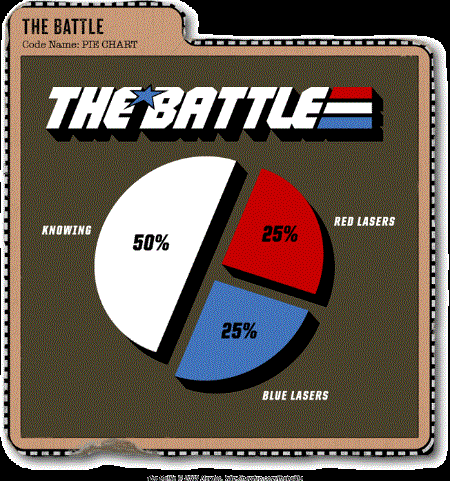Milk Vs. Water
Replies
-
No where in your overly long and uncited copy and paste does it say that water is water in factGuest says, you should listen to those cues and get yourself a drink of water, juice, milk, coffee -- anything but alcohol.
Would seem to support mine and browsers argument. Not your own :bigsmile:0 -
Hmmm everyone else beat me to it. :grumble:0
-
Hmmm everyone else beat me to it. :grumble:
:smooched:0 -
What about the advice to drink eight glasses a day?
Everyone has heard the advice, "Drink eight 8-ounce glasses of water a day." That's about 1.9 liters, which isn't that different from the Institute of Medicine recommendations. Although the "8 by 8" rule isn't supported by hard evidence, it remains popular because it's easy to remember. Just keep in mind that the rule should be reframed as: "Drink at least eight 8-ounce glasses of fluid a day," because all fluids count toward the daily total.
http://www.mayoclinic.org/healthy-living/nutrition-and-healthy-eating/in-depth/water/art-200442560 -
Well I'm trying to bulk (only 146 lbs at the moment).
Then I'd say it sounds like a good idea for you.
I was going to say the only bad thing about doing so is that the calories would add up quickly (about 150 per 8 fl ounces), but if you want to bulk up, I could see it being beneficial.0 -
so if one was marooned on an island with no fresh water source, no way to distill water from the sea, and an unlimited supply of beer they would die of dehydration by drinking the beer?0
-
No where in your overly long and uncited copy and paste does it say that water is water in factGuest says, you should listen to those cues and get yourself a drink of water, juice, milk, coffee -- anything but alcohol.
Would seem to support mine and browsers argument. Not your own :bigsmile:
Don't you hate it when you google something, don't read it, paste it to a forum to "support" your argument but then it backfires egregiously and makes you look... misinformed? 0
0 -
so if one was marooned on an island with no fresh water source, no way to distill water from the sea, and an unlimited supply of beer they would die of dehydration by drinking the beer?
According to some people yes.
But what a way to go 0
0 -
No where in your overly long and uncited copy and paste does it say that water is water in factGuest says, you should listen to those cues and get yourself a drink of water, juice, milk, coffee -- anything but alcohol.
Would seem to support mine and browsers argument. Not your own :bigsmile:
Don't you hate it when you google something, don't read it, paste it to a forum to "support" your argument but then it backfires egregiously and makes you look... misinformed?
What you did there, I see it.0 -
I am in no way an expert but I will relay this story to you. When my nephew was around 7 years old, his parents were concerned about how thin he was and consulted a doctor. One of the questions they were asked was how much milk he was drinking. He apparently not only drank glasses of milk with meals, but also at other times during the day. The doctor suggested that the milk may be filling him up so he wasn't as hungry at meals as he should be. They started limiting the milk and he did eat better. He was (and still is) always slim, but looked much healthier. Something to consider if you are trying to bulk up.0
-
No where in your overly long and uncited copy and paste does it say that water is water in factGuest says, you should listen to those cues and get yourself a drink of water, juice, milk, coffee -- anything but alcohol.
Would seem to support mine and browsers argument. Not your own :bigsmile:
Don't you hate it when you google something, don't read it, paste it to a forum to "support" your argument but then it backfires egregiously and makes you look... misinformed?
What you did there, I see it.
:laugh:
I'm sure she is googling pointlessly to try and find something that proves her right.0 -
BahahahaNo where in your overly long and uncited copy and paste does it say that water is water in factGuest says, you should listen to those cues and get yourself a drink of water, juice, milk, coffee -- anything but alcohol.
Would seem to support mine and browsers argument. Not your own :bigsmile:
Don't you hate it when you google something, don't read it, paste it to a forum to "support" your argument but then it backfires egregiously and makes you look... misinformed?
Best fail of the day!0 -
Damn. Only page 2 and all there is nothing left to say. Even the Mayo Clinic link has been posted (I do like the McMaster one too)….you guys are good.0
-
No where in your overly long and uncited copy and paste does it say that water is water in factGuest says, you should listen to those cues and get yourself a drink of water, juice, milk, coffee -- anything but alcohol.
Would seem to support mine and browsers argument. Not your own :bigsmile:
Don't you hate it when you google something, don't read it, paste it to a forum to "support" your argument but then it backfires egregiously and makes you look... misinformed?
What you did there, I see it.
:laugh:
I'm sure she is googling pointlessly to try and find something that proves her right.
I think this is good. Since she's not back yet, it means she's actually reading which means she might actually gain some knowledge. 0
0 -
All I know is, looking back on my life, when I stopped drinking milk, my health began to deteriorate... Yes, I never drank water growing up, only drank tons of whole milk...Stopped in my 20's... I was always known for my really, thick, very strong, shiny, long, curly hair and my amazingly, long beautiful and strong, indestructable, nails. Milk was the ONLY thing that I had changed, because I thought it wasn't cool or adult enough, to drink anymore. Stupid. ( My hair and nails are NOTHING now, compared to what they used to be. I used up all of my "reserves"...lol... ) Milk was the only variable. The milk back then, didn't have all the hormones in it either, so it was maybe healthier. I know it is more expensive, but maybe, you can supplement with organic milk once in a while, too, with your regular milk drinking... to keep it even healthier. ) : ) I vote yes to milk! :drinker: p.s. Yes, I was super healthy, too. Never got sick... :happy:0
-
Damn. Only page 2 and all there is nothing left to say. Even the Mayo Clinic link has been posted (I do like the McMaster one too)….you guys are good.
You like that one? I've been holding on to it for just such an occasion.
I keep it in the folder marked "LOLCOWBABBY'
True story.0 -
Personally try to avoid milk as often as I can. It's unnatural for us to drink the milk of another animal, but as long as you aren't lactose intolerant it really shouldn't be a problem. Moderation is key. I drink almond milk. Skim milk only on cheat days. There are many other "wheys" to get your protein (see what I did there).
Sweetened strained nut water is soooo much more natural to consume than cow's milk, right?
:huh:
Also, skim milk is gross. Go whole or go home.0 -
I would say yes add it if you feel like it but don't neglect water or replace water with milk. WATER IS WATER and your body needs water.
Your body gets water through anything that contains... wait for it... water. You could eat nothing but hydrating foods, never drink a drop of water and be absolutely healthy.
Your body does not differentiate between the water from a piece of fruit, a soda, a glass of milk or a glass of water. It still has the chemical make up of H2O and the body still processes it and uses it in the same manner.
Drink water if you're not getting enough hydration through other methods, don't drink water just because you can see through it.
You have been misinformed.
LOL :laugh:
So how long after drinking water do I need to wait before eating food (since combining water with food apparently makes it lose it's watery abilities)? How long do I need to wait after eating food before drinking water for the same reason?
Seriously...think these all the way through before you dismiss my questions as irrelevant.0 -
forget the hippies, you're gaining. Drink 2% milk all the time.0
-
Personally try to avoid milk as often as I can. It's unnatural for us to drink the milk of another animal, but as long as you aren't lactose intolerant it really shouldn't be a problem. Moderation is key. I drink almond milk. Skim milk only on cheat days. There are many other "wheys" to get your protein (see what I did there).
it's unnatural for you to be on the internet, but that hasn't stopped you yet.0 -
Okay anyone corrects me, I'm not claming for be a scientist or an expert of any kind. But here is my arguement on the whole milk vs. Water thing
Now from what I could imagine, there are more than one type of milk. And depending on the amount of "stuff" you add in your milk, it may make the milk to be more concentrated than your body cells (hypertonic). As a result, water from your cells could be drawn OUT in order to dilute the extra cellular environment. And you get DEhydrated.
Well. Okay. That's my hypothesis. I don't like milk but at the same time I admit that milk isn't bad for the human by any mean. And yes it is perfectly natural to eat/drink other animal's nutritional products, because we aren't cannibals. Just want to throw out a POSSIBLE explanation to his madness.0 -
If you're trying to bulk up go with the milk, to restrict a hell of alot of calories being taken in drink non fat!0
-
I would say yes add it if you feel like it but don't neglect water or replace water with milk. WATER IS WATER and your body needs water.
Your body gets water through anything that contains... wait for it... water. You could eat nothing but hydrating foods, never drink a drop of water and be absolutely healthy.
Your body does not differentiate between the water from a piece of fruit, a soda, a glass of milk or a glass of water. It still has the chemical make up of H2O and the body still processes it and uses it in the same manner.
Drink water if you're not getting enough hydration through other methods, don't drink water just because you can see through it.
You have been misinformed.
LOL :laugh:
So how long after drinking water do I need to wait before eating food (since combining water with food apparently makes it lose it's watery abilities)? How long do I need to wait after eating food before drinking water for the same reason?
Seriously...think these all the way through before you dismiss my questions as irrelevant.
I think this is a question better posed to the man that knows everything about water:
Oh, he's declining to comment. He really is useless.0 -
Personally try to avoid milk as often as I can. It's unnatural for us to drink the milk of another animal, but as long as you aren't lactose intolerant it really shouldn't be a problem. Moderation is key. I drink almond milk. Skim milk only on cheat days. There are many other "wheys" to get your protein (see what I did there).
Better tell that to the cats and birds that steal milk from lactating seals. I am sure they would be scandalized to think that they are not being 'natural'.0 -
Okay anyone corrects me, I'm not claming for be a scientist or an expert of any kind. But here is my arguement on the whole milk vs. Water thing
Now from what I could imagine, there are more than one type of milk. And depending on the amount of "stuff" you add in your milk, it may make the milk to be more concentrated than your body cells (hypertonic). As a result, water from your cells could be drawn OUT in order to dilute the extra cellular environment. And you get DEhydrated.
Well. Okay. That's my hypothesis. I don't like milk but at the same time I admit that milk isn't bad for the human by any mean. And yes it is perfectly natural to eat/drink other animal's nutritional products, because we aren't cannibals. Just want to throw out a POSSIBLE explanation to his madness.
You should have stopped there.0 -
Okay anyone corrects me, I'm not claming for be a scientist or an expert of any kind. But here is my arguement on the whole milk vs. Water thing
Now from what I could imagine, there are more than one type of milk. And depending on the amount of "stuff" you add in your milk, it may make the milk to be more concentrated than your body cells (hypertonic). As a result, water from your cells could be drawn OUT in order to dilute the extra cellular environment. And you get DEhydrated.
Well. Okay. That's my hypothesis. I don't like milk but at the same time I admit that milk isn't bad for the human by any mean. And yes it is perfectly natural to eat/drink other animal's nutritional products, because we aren't cannibals. Just want to throw out a POSSIBLE explanation to his madness.
I'm loving this thread so much right now.0 -
And don't forget vegetables. Plants don't grow just so that people can eat them.I disagree. Milk is meant for baby cows.
I suppose you also don't eat honey? Pretty sure bees aren't puking that out for your consumption.0 -
Personally try to avoid milk as often as I can. It's unnatural for us to drink the milk of another animal, but as long as you aren't lactose intolerant it really shouldn't be a problem. Moderation is key. I drink almond milk. Skim milk only on cheat days. There are many other "wheys" to get your protein (see what I did there).
it's unnatural for you to be on the internet, but that hasn't stopped you yet.
You're back?0 -
Okay anyone corrects me, I'm not claming for be a scientist or an expert of any kind. But here is my arguement on the whole milk vs. Water thing
Now from what I could imagine, there are more than one type of milk. And depending on the amount of "stuff" you add in your milk, it may make the milk to be more concentrated than your body cells (hypertonic). As a result, water from your cells could be drawn OUT in order to dilute the extra cellular environment. And you get DEhydrated.
Well. Okay. That's my hypothesis. I don't like milk but at the same time I admit that milk isn't bad for the human by any mean. And yes it is perfectly natural to eat/drink other animal's nutritional products, because we aren't cannibals. Just want to throw out a POSSIBLE explanation to his madness.
What?0 -
And don't forget vegetables. Plants don't grow just so that people can eat them.I disagree. Milk is meant for baby cows.
I suppose you also don't eat honey? Pretty sure bees aren't puking that out for your consumption.
CARROT JUICE IS FOR BABY CARROTS
Wait.0
This discussion has been closed.
Categories
- All Categories
- 1.4M Health, Wellness and Goals
- 394.8K Introduce Yourself
- 44K Getting Started
- 260.6K Health and Weight Loss
- 176.2K Food and Nutrition
- 47.5K Recipes
- 232.7K Fitness and Exercise
- 444 Sleep, Mindfulness and Overall Wellness
- 6.5K Goal: Maintaining Weight
- 8.6K Goal: Gaining Weight and Body Building
- 153.2K Motivation and Support
- 8.2K Challenges
- 1.3K Debate Club
- 96.4K Chit-Chat
- 2.5K Fun and Games
- 4.2K MyFitnessPal Information
- 16 News and Announcements
- 1.3K Feature Suggestions and Ideas
- 2.8K MyFitnessPal Tech Support Questions

















